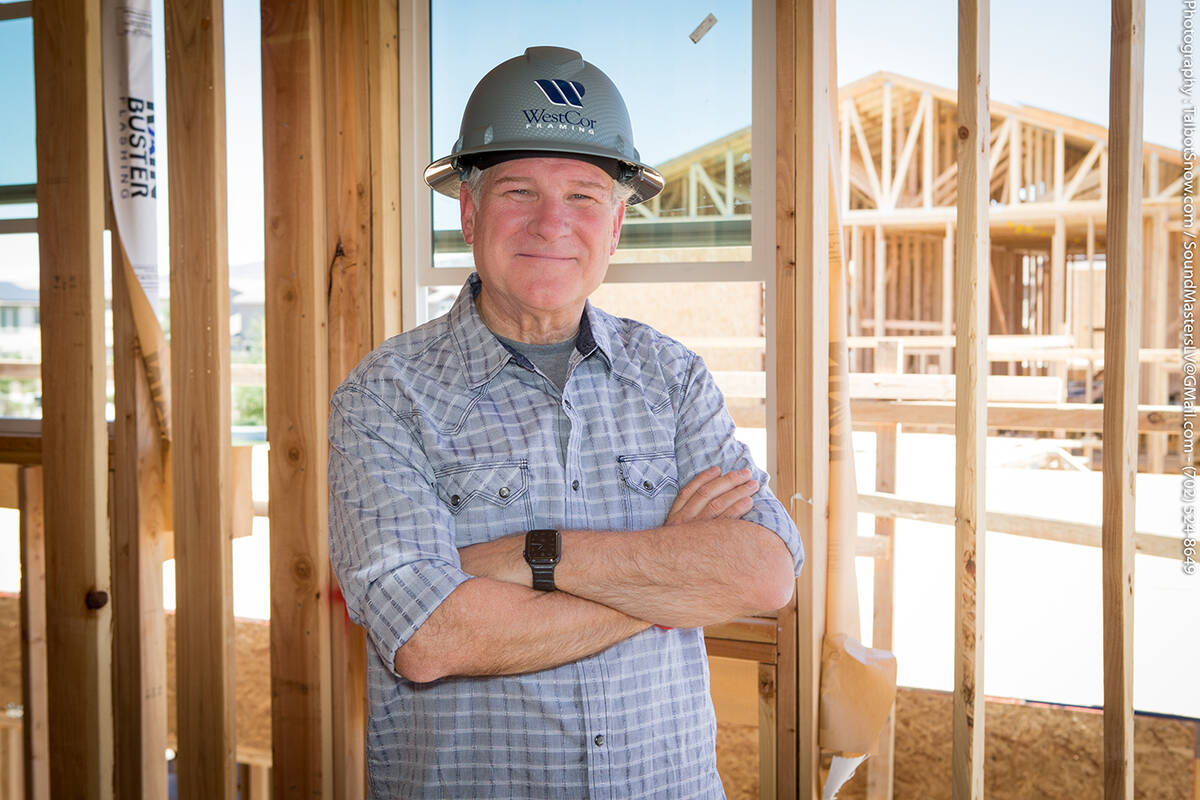Las Vegas construction industry facing new normal
It goes without saying that economic fluctuations during the past 2½ years, largely caused by the global COVID-19 pandemic, have had dramatic effects on every facet of our social life in ways that we could hardly have imagined before.
These include imposed social distancing, subsequent job losses, supply chain issues, a government-funded recovery and what now appears to be an impending recession. In the construction industry, the short-term impacts are already consequential and, in the long-term, could be even more so.
This is especially true in residential construction. Based on experience, with inflation and rising interest rates, we should be looking at a slowdown, particularly in the entry-level and first-move-up markets. This is currently not the case, however, because new-home construction has been unable to keep up with demand. Residential housing is being impacted by a severe labor shortage, resulting in labor costs that are higher and slower production schedules. In addition, the supply chain for construction materials has been severely disrupted, and it may take many years before the supply chain will return to normal.
For example, the cost of lumber has seen extreme fluctuation, as high as 400 percent more than pre-pandemic levels. Now, it’s in a free fall, but the cost is still significantly higher than three years ago. Supply issues also extend to products like dishwashers, refrigerators and other appliances, which are backlogged. In the past, builders would acquire these items when homes were near completion. Today, builders and contractors are buying whatever they can find and storing until needed.
Today, there is enough backlog in production that sales are not immediately impacted, but cost of construction is so volatile that some homebuilders cannot even guarantee a final price; the consumer has to bear part of the risk. The choked supply is also exacerbated by investors and cash buyers who are pushing out traditional buyers. But though homes are much more expensive than they were in the last recession, the market fundamentals are much different, and we should not see a large uptick in foreclosures. This will not be a housing collapse; but if we go into a recession, it will be more like a stall.
Multifamily housing in the post-pandemic world will continue to stay strong; if people can’t buy a house, they are going to have to rent. Existing apartment building renovation and new apartment construction projects are also expanding, but construction cost and supply issues are still very much a factor in product delivery. In a recent development, single-family homebuilders are also looking at creating communities of for-rent detached homes. These communities are specifically designed to appeal to entry-level homeowners.
American Homes 4 Rent, a national leader in that segment, currently has 55,000 single-family homes in 22 states, a model that many other homebuilders are watching closely.
One area of the housing market that is most perilous is affordable housing for low-income families and seniors on fixed income. It is estimated that there is a shortage of more than 70,000 affordable housing units in Southern Nevada alone, and as construction costs grow and supply diminishes, more people are going to be priced out.
The commercial construction market has seen its own challenges. Historically, the typical commercial development pattern is that commercial stays strong even when residential weakens because of larger backlogs, typically in excess of one year. Commercial could slow if a looming recession lasts longer than a year.
However, there are other factors in play with retail and office space. Before the pandemic, bricks-and-mortar retail spaces were already in decline because of the rise in on-line sales. Over the past two years, we have seen online sales rise even more. There will still be moderate growth in retail, but I doubt we will ever see another major mall development any time soon, other than one attached to a resort complex.
Office space may undergo a similar evolution. During the pandemic, a large part of the traditional office labor force was encouraged, and even mandated, to work from home. As the economy has rebounded, there is now a tug of war developing between those who want to remain at home and offices that want to go to full operations. New office construction will stay level while this evolution takes place.
If there is a bright spot in commercial development, it is in the big-box industrial arena, which will continue to grow because of online shopping; there will be a big need for warehouse space and large distribution centers.
With all construction, whether it is residential, multifamily or commercial, we are entering a new normal, and we won’t fully know what that normal is for a few years to come.
Kevin Booth is the CEO of WestCor Cos., a leader in the construction industry, where he is responsible for determining the company’s growth, direction and strategy, as well as its values and mission.

















